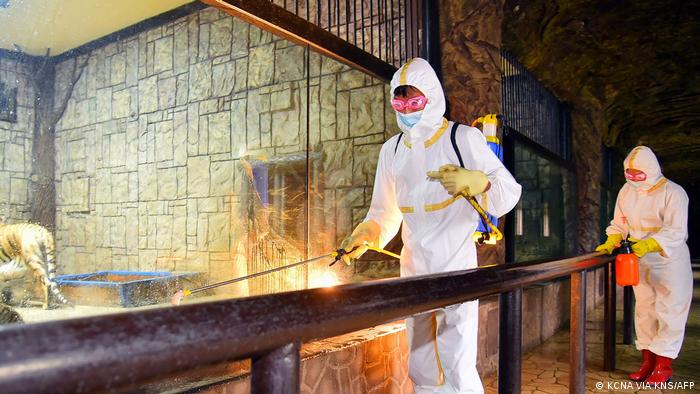
North Korea on Saturday reported more than 200,000 new patients suffering from a "fever" for a fifth consecutive day, as a coronavirus outbreak hit the isolated Asian nation.
Authorities confirmed a wave of COVID-19 infections last week, possibly due to the omicron variant. This has led to concerns over the situation in the largely unvaccinated country, which also suffers from inadequate medical facilities and a food shortage crisis.
At the same time, North Korean leader Kim Jong Un held a meeting with top members of his ruling Workers' Party on Saturday, and praised "positive progress" in the campaign to contain the virus. He said the country's policy needs to be changed and optimized to "seize the chance of winning the battle against the epidemic," state news agency KCNA reported.
How bad is the outbreak?
North Korea said Friday that nearly 10% of its 26 million people have fallen ill, after more than two years of claiming to be COVID-free.
At least 219,030 people newly showed fever symptoms by Friday evening, taking the total number of such cases to 2,460,640, said KCNA, citing data from the country's anti-virus headquarters. The death toll currently stands at 66.
The outbreak possibly originated from a military parade held in Pyongyang on April 25.
It was unclear how many people had tested positive for the virus. The isolated nation has very limited testing capacity, and has refused help from other nations.
Experts believe the state data to be underreported, and say it might be difficult to assess the scale of the wave of infections. Observers think North Korea was possibly forced to acknowledge the outbreak because it could not hide it and risk public discontent.
North Korea could seek foreign help if surge persists
Kwak Gil Sup, head of One Korea Center, a website specializing in North Korea affairs, told AP news agency that North Korea is partly using the outbreak as a propaganda tool to show that it is overcoming the pandemic with Kim's leadership.
But the country likely has "a Plan B" to seek foreign aid if the pandemic gets out of hand, he added.
South Korea's spy agency, the National Intelligence Service, said on Thursday that "a considerable number'' of the fever cases reported by North Korea include people sick with waterborne diseases like measles, typhoid and pertussis.
Some media reports said North Korea already sent planes to China to bring back emergency supplies earlier this week, but the reports could not be confirmed. South Korea and the US have offered to ship vaccines, but Pyongyang has refused the offers.
The UN's human rights agency has warned of "devastating" consequences for North Korea's 25 million people. The World Health Organization has said unchecked spread could lead to the emergence of deadlier new variants of the disease.